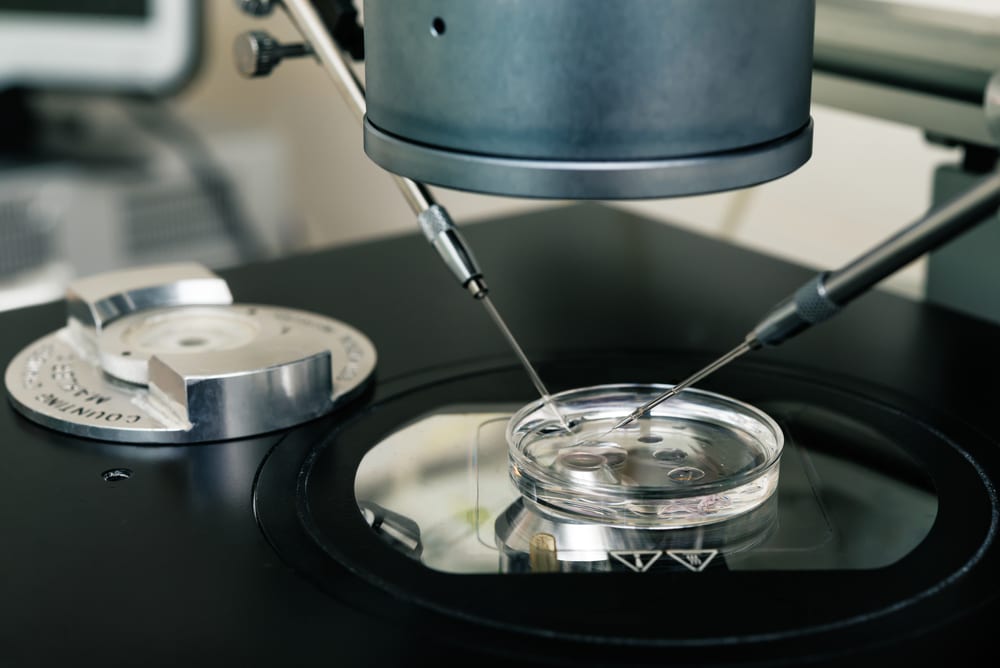Contents:
- Medical Video: North Texas IVF - IUI and IVF Costs
- Difference between IVF and artificial insemination from the process
- Artificial insemination process
- IVF process
- Which is the most suitable for you?
- Artificial insemination
- Test-tube baby
- Which is the safest and most effective way to produce a pregnancy?
Medical Video: North Texas IVF - IUI and IVF Costs
You and your partner have had their health checked and have undergone any treatment to improve fertility. But, unfortunately, your pregnancy program didn't work. Finally, you intend to take the IVF program. However, there is also something called artificial insemination. What difference in IVF and artificial insemination? Consider the following review.
Difference between IVF and artificial insemination from the process
Artificial insemination process
Artificial insemination, or also called intrauterine insemination (IUI) as reported from Mayo Clinic,is a procedure in which sperm from a man's semen is washed to place the best concentration of all sperm into the catheter. This catheter is then inserted through the cervix to go directly to the uterus where the sperm will be stored. After that, the sperm will naturally find a way to reach the fallopian tube and find the egg to be fertilized.
This procedure can only be performed on women with an open fallopian tube, and is usually combined with several forms of uterine stimulation, such as injectable gonadotropins. This is a kind of medical preparation of hormones produced by the brain to stimulate the uterus to prepare its eggs to be released.
IVF process
In vitro fertilization (IVF) or commonly called IVF program, is a process in which the ovary is stimulated to produce many eggs which are then extracted from the uterus through suctioning. This procedure is done by carrying out general anesthesia.
The egg and sperm are then placed in a special cup to allow fertilization to occur, and incubated for 3-5 days. This is the most obvious difference between these two processes. In artificial insemination, fertilization still occurs in the mother's body while in IVF, fertilization is carried out in the laboratory.
Some of the embryos produced are then placed in the catheter and stored back in the mother's womb with the remaining frozen embryos.
Which is the most suitable for you?
Artificial insemination
This treatment can be used to handle a number of cases infertility with unclear causes and cases of low sperm count. Although the success rate of pregnancy with artificial insemination techniques is not as high as other techniques, this procedure has the advantage of being less expensive and low in side effects.
Artificial insemination is also a short and relatively painless procedure. Before performing an artificial insemination procedure, the doctor will examine the reproductive organs and fertility of each partner. This is to find out what might be a natural obstacle to pregnancy.
Test-tube baby
Generally the IVF procedure is carried out after consumption of drugs, surgical procedures, or artificial insemination is not able to overcome the problem of infertility.
IVF is usually done by women with blocked fallopian tubes, advanced reproductive age, men with low sperm counts, or infertility that cannot be explained. Embryonic chromosomes can also be evaluated through a separate procedure called pre-implantation of genetic diagnosis (PGD) to assess whether an embryo has genetic abnormalities such as Down's syndrome.
Which is the safest and most effective way to produce a pregnancy?
Although IVF programs cost more than artificial insemination, the technology used is now increasingly sophisticated, increasing the likelihood of success.
However, the process of IVF has risks that must be considered by a married couple. One risk is when taking procedures egg, may occur infection, bleeding, or disorders of the intestine or other organs.
There is also the risk of drugs being used to stimulate ovary, i.e. ovarian hyperstimulation syndrome. Effects that are felt vary, ranging from bloating, cramps or mild pain, weight gain, to unbearable pain in the stomach. Severe effects must be treated at the hospital even though symptoms can usually disappear over time.













